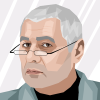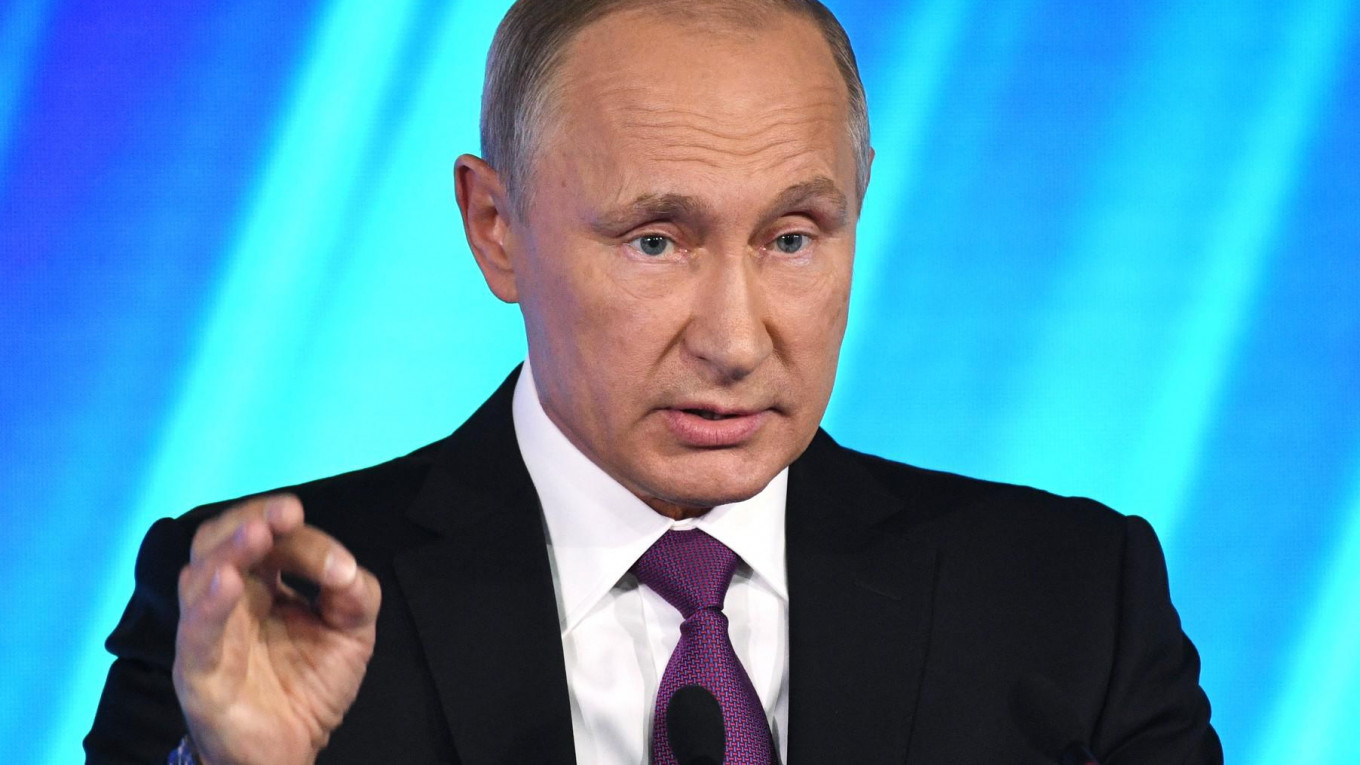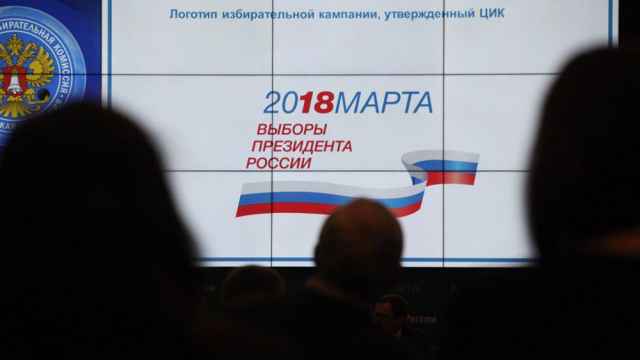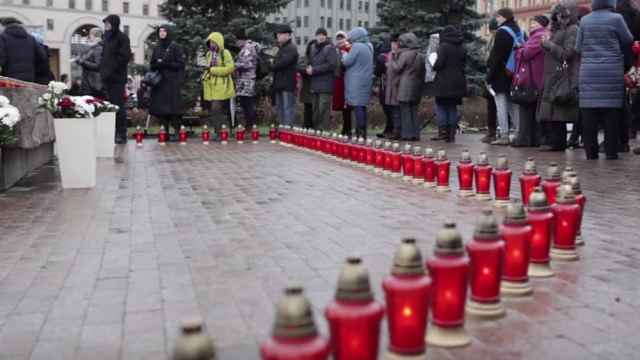Russia’s political scene is entering a new phase. The official presidential candidate for the elections next March, Vladimir Putin, has not declared his hand. If anything, he’s increasingly absent.
Meanwhile, discussion within the ruling elite is focused not on the next stage of the Putin era, but on what will come after.
Political life has returned to Russia. Who would have expected last fall that Alexei Navalny, known until then as an anti-corruption campaigner, would be able to launch a juggernaut campaign fifteen months before polling day? I didn’t. We were so used to the idea that it was impossible to influence a Russian election campaign, we forgot that someone might simply try to fight one.
By the middle of the year, it was clear that Navalny’s public meetings were more than civic activism. It was clear that an active election campaign was underway. Russia’s political stage was full of life, which made Putin’s absence from it all the more noticeable and his silence louder.
The problem for the Kremlin is that the importance of the elections in March — that many have dismissed as simply a formality or an irrelevance — has grown, while the comparable stature of President Putin has not. Navalny is posing a challenge and a double question to the Kremlin: What will you do with me? And what will you do with this election?
With the election less than four months away, Putin has not yet declared his candidacy, though everyone expects it. He is as visible as ever in the media, but now he fails to convince that he is the author of Russia’s political activity or is still a leader who takes responsibility.
In short, the Kremlin writers who are putting together the script for 2018 worry that Putin has become nobody’s leader — that he is now more akin to the centerpiece of the nation, a fixed entity against which other forces collide.
Now, at the end of 2017, it is possible to conceive of a system without Putin.
He is not acting in sync with his inner circle. Each feels uncomfortable with the other, as the president grows more stingy with his interventions to resolve power struggles within the elite. Putin has never been interested in classical “politics.” So the apolitical president does not take definite positions on issues — it’s easier for decisions to be taken in his name.
Nowadays, we increasingly have the impression that “the boss is away.” The management of Russia that is formally exercised by the president has been almost entirely taken over by his inner circle and the presidential administration. But they are no longer just a general staff. They have turned into a player with its own special interests. To put it another way, the president himself has suddenly discovered that he is surrounded by “regents” with varying degrees of power.
The higher we go in the presidential administration, the more we see pure palace rule. The modern-day “court of his Imperial Majesty” sees anything in the state budget or that can be made liquid as its property — whether governmental positions, territories, threats, people, or infrastructure.
Meanwhile, Sergei Kiriyenko, first deputy head of the administration, is guarding Putin’s Russia until Putin returns. He is the overtime manager. He waits for orders, but none come.
The system is not only functioning without a fully functional Putin, it is also lacking any strategic direction. A lot of noise is made about “hiring younger people,” but in actual fact no political rejuvenation is taking place.
New staff don’t have a program they can work on and are strategically useless under the current model. Only when the political environment thaws will they acquire real power. We hear the word “technocrat” being used about young Russian government officials, but what that term really means is that these people are part of the transition into the post-Putin Russia.
The atmosphere inside the government apparatus is increasingly fearful and the rivalry with the security agencies is intensifying. Arrests in Kremlin circles are not part of “Putin’s plan.” Rather, they are a manifestation of competition for power.
If we are to understand Russia’s pre-election landscape, we must first understand the Kremlin’s 2018 agenda.
The near-term political goal is not about getting to a post-Putin Russia, it is about planning a transition. But it’s worth noting that the discussions are all about preserving the system, not about preserving Putin. Putin himself, it should be noted, is sure to have his own opinion on this matter. Unlike Putin, this is a system determined not to disappear, and it is run by champions in the art of survival.
Election strategists are now facing an especially stern test. For three presidential elections in a row — in 2004, 2008, and 2012 — they worked to make the campaigns a politics-free zone in which the outcome was fully predetermined.
Navalny is now working hard to spoil this script and to make the March vote a real contest again. He has done this by choosing to put himself forward and resolving to fight to the end. Whether or not Navalny is registered as an official candidate, he has succeeded in making the election a proper political process once again.
Even if Navalny is not registered, it will still be a boost to his campaign, and he will be able to mobilize a wide range of Russians. In that case, he will face some difficult political questions: Where to direct this powerful force and how to convince them to vote.
That’s where a political opening exists for the liberal socialite Ksenia Sobchak. If Navalny is refused registration, she may gain political momentum by winning over his electorate. But there are big question marks over her political durability and whether she could do anything like Navalny has done in creating a national campaign.
The start of the 2018–2024 presidential term will be the occasion for dealmaking at the highest level.
The deal will have to have a firmly fixed objective and a deadline, which may be 2024, when a new kind of politics returns to Russia and there is real strategic planning for the future.
That may even be the moment that Putin regains his own political face, a face he has rubbed away with years of bad decisions.
Even while Putin is an undeclared candidate and Navalny is an unregistered one, the race between them is approaching a culmination around the New Year period. Soon the state will either have to try to register Navalny for the election or refuse him. Either option could trigger a crisis.
In either eventuality, Putin will have to fight against the unregistered Navalny Party, which consists of tens and hundreds of thousands of Russian citizens. This will be the main conflict of the campaign — not the one between Putin and Navalny, but the one between Putin and Navalny’s supporters.
These people are not just the supporters of their candidate but the most determined supporters of transition of Russia’s passage into a post-Putin future.
Gleb Olegovich Pavlovsky is a Russian political scientist and President of the Foundation for Effective Politics. The views and opinions expressed in opinion pieces do not necessarily reflect the position of The Moscow Times.
This article was originally published by the Carnegie Center Moscow.
A Message from The Moscow Times:
Dear readers,
We are facing unprecedented challenges. Russia's Prosecutor General's Office has designated The Moscow Times as an "undesirable" organization, criminalizing our work and putting our staff at risk of prosecution. This follows our earlier unjust labeling as a "foreign agent."
These actions are direct attempts to silence independent journalism in Russia. The authorities claim our work "discredits the decisions of the Russian leadership." We see things differently: we strive to provide accurate, unbiased reporting on Russia.
We, the journalists of The Moscow Times, refuse to be silenced. But to continue our work, we need your help.
Your support, no matter how small, makes a world of difference. If you can, please support us monthly starting from just $2. It's quick to set up, and every contribution makes a significant impact.
By supporting The Moscow Times, you're defending open, independent journalism in the face of repression. Thank you for standing with us.
Remind me later.








